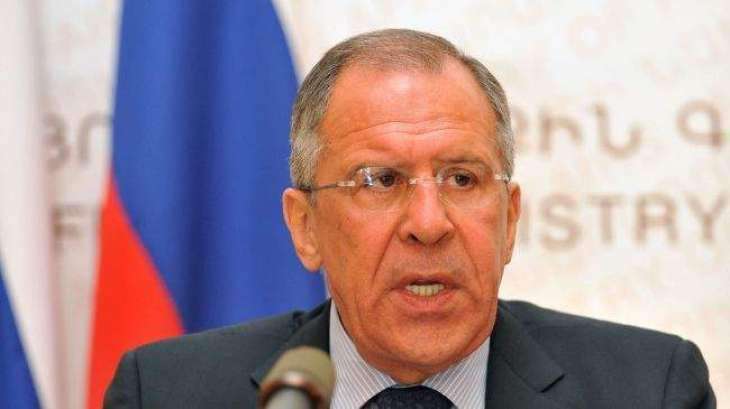The Organization for Security and Co-operation in Europe's (OSCE) High Commissioner on National Minorities Lamberto Zannier told Sputnik on Monday that his meeting with Russian Foreign Minister Sergey Lavrov was rather useful,
MOSCOW (Pakistan Point News / Sputnik - 30th October, 2018) The Organization for Security and Co-operation in Europe's (OSCE) High Commissioner on National Minorities Lamberto Zannier told Sputnik on Monday that his meeting with Russian Foreign Minister Sergey Lavrov was rather useful, with the two officials having discussed a number of pressing issues, including the situation with education laws in Ukraine and Latvia.
"I think it was a useful exchange of information, useful clarification, it was useful way for me to explain to the minister all the steps that we have taken ... And for minister, to share with me his concerns when it comes to Russians and Russian speakers in the neighboring countries. It was very useful exchange from that perspective," Zannier said.
The official noted that the meeting was not about seeking agreements, but about comparing notes and discussing acute issues, in particular, those related to Russian speaking populations in a number of countries, such as Ukraine and Latvia.
"Of course [the issue of minorities in] Ukraine, it was high in the agenda, both the implementation of the law on education, including implementation of the Venice Commission recommendation, and then the new law on language, the use of language," he said, adding that the OSCE was aware of Russian concerns over the issue.
Zannier also said that he had informed Lavrov about steps his office took with regard to Latvia's education law, which outlines the switch to education that is taught exclusively in the Latvian language. He stressed that a number of recommendations were given to both countries to achieve balance.
"Basically we need to find a balance between the risk of assimilation on one hand and resistance to integration on the other hand. We want to see societies that are well integrated, but we do not want to see identities that are canceled in a way," he said.
Both Ukraine and Latvia have various minorities, which include Russian speaking ethnic groups.
Under the new Ukrainian law, since September 1, children from national minority groups have been able to study in their native language only at the Primary school level, while secondary and post-secondary education is only in Ukrainian. The full switch to Ukrainian-language education is set for September 1, 2020. In early December 2017, the Council of Europe's advisory body on constitutional matters (Venice Commission) qualified that it was a legitimate aim for states to promote the strengthening of the state language and its command by all citizens, however, recommended consulting ethnic minorities and extending a transitional period for the law implementation.
In late March, the Latvian parliament made a final decision to completely transfer the schools of national minorities, including Russian-language schools, to the Latvian language education by 2021. The bill was signed by Latvian President Raimonds Vejonis. In early July, Vejonis approved amendments to the education law, which were passed by the parliament on June 21. Under the new legislation, Latvian private colleges and universities are to use Latvian as the sole language of instruction starting from January 1, 2019. A foreign language will be only used in cultural exchange programs and language courses.




